Related Research Articles

Marcos Orlando Letelier del Solar was a Chilean economist, politician and diplomat during the presidency of Salvador Allende. A refugee from the military dictatorship of General Augusto Pinochet, Letelier accepted several academic positions in Washington, D.C. following his exile from Chile. In 1976, agents of Dirección de Inteligencia Nacional (DINA), the Pinochet regime's secret police, assassinated Letelier in Washington via the use of a car bomb. These agents had been working in collaboration with members of the Coordination of United Revolutionary Organizations, an anti-Castro militant group.

Operation Condor was a United States-backed campaign of political repression and state terrorism, involving intelligence operations, CIA-backed coups, as well as assassinations of left-wing sympathizers, liberals and democrats and their families in South America which formally existed from 1975 to 1983. Operation Condor was officially and formally implemented in November 1975 by the right-wing dictatorships of the Southern Cone of South America.
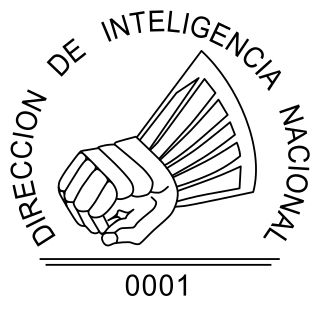
The Dirección de Inteligencia Nacional or DINA was the secret police of Chile during the dictatorship of Augusto Pinochet. The DINA has been referred to as "Pinochet's Gestapo". Established in November 1973 as a Chilean Army intelligence unit headed by Colonel Manuel Contreras and vice-director Raúl Iturriaga, the DINA was then separated from the army and made an independent administrative unit in June 1974 under the auspices of Decree 521. The DINA existed until 1977, after which it was renamed the Central Nacional de Informaciones or CNI.

Carlos Prats González was a Chilean Army officer and politician. He served as a minister in Salvador Allende's government while Commander-in-chief of the Chilean Army. Immediately after General Augusto Pinochet's September 11, 1973 coup, Prats went into voluntary exile in Argentina. The following year, he and his wife, Sofía Cuthbert, were assassinated in Buenos Aires by a car bomb planted by the Dirección de Inteligencia Nacional.
Juan Manuel "Mamo" GuillermoContreras Sepúlveda was a Chilean Army officer and the former head of the National Intelligence Directorate (DINA), Chile's secret police during the dictatorship of General Augusto Pinochet. In 1995, he was convicted of the murder of Chilean diplomat Orlando Letelier in Washington, DC, and sentenced to seven years in prison, which he served until 2001. At the time of his death, Contreras was serving 59 unappealable sentences totaling 529 years in prison for kidnapping, forced disappearance, and assassination.
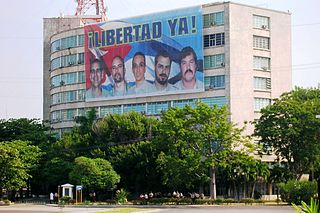
The Cuban Five, also known as the Miami Five, are five Cuban intelligence officers who were arrested in September 1998 and later convicted in Miami of conspiracy to commit espionage, conspiracy to commit murder, acting as an agent of a foreign government, and other illegal activities in the United States. The Five were in the United States to observe and infiltrate the Cuban-American groups Alpha 66, the F4 Commandos, the Cuban American National Foundation, and Brothers to the Rescue. They were part of La Red Avispa composed of at least 27 Cuban spies.
United States intervention in Chilean politics started during the War of Chilean Independence (1812–1826). The influence of United States in both the economic and the political arenas of Chile has since gradually increased over the last two centuries, and continues to be significant.
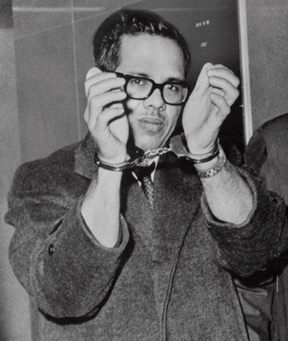
Orlando Bosch Ávila was a Cuban exile militant, who headed the Coordination of United Revolutionary Organizations (CORU), described by the United States Federal Bureau of Investigation as a terrorist organization. Born in Cuba, Bosch attended medical school at the University of Havana, where he befriended Fidel Castro. He worked as a doctor in Santa Clara Province in the 1950s, but moved to Miami in 1960 after he stopped supporting the Cuban Revolution.
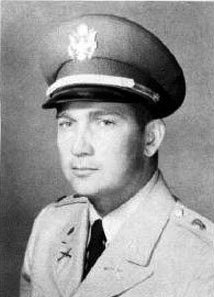
Luis Clemente Posada Carriles was a Cuban exile militant and Central Intelligence Agency (CIA) agent. He was considered a terrorist by the United States' Federal Bureau of Investigation (FBI) and the Government of Cuba, among others.

Cubana de Aviación Flight 455 was a Cuban flight from Barbados to Jamaica that was brought down on 6 October 1976 by a terrorist bomb attack. All 73 people on board the Douglas DC-8 aircraft were killed after two time bombs went off and the plane crashed into the sea. The crash killed every member of the Cuban national fencing team.

The Caravan of Death was a Chilean Army death squad that, following the Chilean coup of 1973, flew by helicopters from south to north of Chile between September 30 and October 22, 1973. During this foray, members of the squad ordered or personally carried out the execution of at least 75 individuals held in Army custody in certain garrisons. According to the NGO Memoria y Justicia, the squad killed 97 people: 26 in the South and 71 in the North. Augusto Pinochet was indicted in December 2002 in this case, but he died four years later before a verdict could be rendered. His trial, however, is ongoing since his and other military personnel and a former military chaplain have also been indicted in this case.
Michael Vernon Townley is an American-born former agent of the Dirección de Inteligencia Nacional (DINA), the secret police of Chile during the regime of Augusto Pinochet. In 1978, Townley pleaded guilty to the 1976 murders of Orlando Letelier, former Chilean ambassador to the United States, and Ronni Karpen Moffitt, Letelier's co-worker at the Institute for Policy Studies. He was sentenced to ten years in prison, serving 62 months. As part of his plea bargain, Townley received immunity from further prosecution; he was not extradited to Argentina to stand trial for the 1974 assassination of Chilean General Carlos Prats and his wife in Buenos Aires.
The Coordination of United Revolutionary Organizations was a militant group responsible for a number of terrorist activities directed at the Cuban government of Fidel Castro. It was founded by a group that included Orlando Bosch and Luis Posada Carriles, both of whom worked with the CIA at various times, and was composed chiefly of Cuban exiles opposed to the Castro government. It was formed in 1976 as an umbrella group for a number of anti-Castro militant groups. Its activities included a number of bombings and assassinations, including the killing of human-rights activist Orlando Letelier in Washington, D.C., and the bombing of Cubana Flight 455 which killed 73 people.
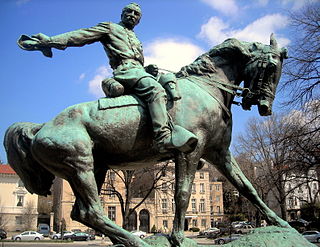
Sheridan Circle is a traffic circle in the Washington, D.C. neighborhood of Embassy Row.

On 21 September 1976, Orlando Letelier, a leading opponent of Chilean dictator Augusto Pinochet, was assassinated by car bombing, in Washington, D.C. Letelier, who was living in exile in the United States, was killed along with his work colleague Ronni Karpen Moffitt, who was in the car with her husband Michael. The assassination was carried out by agents of the Chilean secret police (DINA), and was one among many carried out as part of Operation Condor. Declassified U.S. intelligence documents confirm that Pinochet directly ordered the killing.
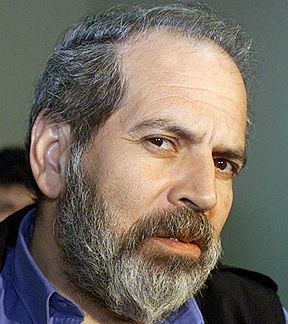
Enrique Arancibia Clavel was a Chilean DINA security service agent who assassinated General Carlos Prats and his wife in 1974.
Raúl Eduardo Iturriaga Neumann is a Chilean Army general and a former deputy director of the DINA, the Chilean secret police under the Augusto Pinochet military dictatorship. He was in charge of a secret detention center known as La Venda Sexy and La Discothèque—because of the sexual abuse inflicted on blindfolded prisoners as loud music masked their screams. An aide to General Manuel Contreras, head of the DINA, he was in charge of several assassinations carried out as part of Operation Condor. He has been condemned in absentia in Italy for the failed murder of Christian-Democrat Bernardo Leighton, and is wanted both in Spain and in Argentina. In the latter country, he is accused of the assassination of General Carlos Prats. He was later found to have played a prominent role in the assassination of Spanish-Chilean United Nations diplomat Carmelo Soria as well.
Eugenio Berríos Sagredo was a Chilean biochemist who worked for the Dirección de Inteligencia Nacional (DINA). Berríos was charged with carrying out Proyecto Andrea in which Pinochet ordered the production of sarin, a nerve agent used by the DINA. Sarin gas leaves no trace and victims' deaths closely mimic heart attacks. Other biochemical weapons produced by Berríos included anthrax and botulism. Berríos also allegedly produced cocaine for Pinochet, who then sold it to Europe and the United States. In the late 1970s, at the height of the Beagle Crisis between Chile and Argentina, Berríos is reported to have worked on a plan to poison the water supply of Buenos Aires. Wanted by the Chilean authorities for involvement in the Letelier case, he escaped to Uruguay in 1991, at the beginning of the Chilean transition to democracy, and what has been identified as his corpse was found in 1995 near Montevideo.
Carmelo Soria was a Spanish-Chilean United Nations diplomat. A member of the CEPAL in the 1970s, he was assassinated by Chile's DINA agents as a part of Operation Condor. Augusto Pinochet was later personally indicted over this case.
Mariana Inés Callejas Honores was a Chilean writer and member of the Dirección de Inteligencia Nacional (DINA) who participated in several terrorist attacks, including the murder of General Carlos Prats and his wife, which was perpetrated in 1974 in Buenos Aires. She was convicted and sentenced to 20 years in prison by courts of the first and second instances, though her term was later reduced to five years.
References
- 1 2 3 4 Golden, Tim (April 24, 1991). "Cuban Exile Is Arrested in Florida In 1976 Slaying of Chilean Envoy". The New York Times. New York. Retrieved December 23, 2012.
- 1 2 3 "12-Year Term for Assassin of Chilean Envoy". The New York Times. New York. Reuters. September 13, 1991. Retrieved December 23, 2012.
- 1 2 3 Taylor, Karen T. (2001). "Age Progression: Aging". Forensic Art and Illustration. CRC Press. pp. 274–275. ISBN 9780849381188 . Retrieved December 23, 2012.
- 1 2 3 4 5 6 7 8 Pape, Eric (July 21, 2002). "A Terrorist's Second Thoughts". Los Angeles Times. Retrieved June 6, 2015.
- 1 2 3 Veiga, Alex (August 2, 2001). "Cuban exile apologizes for '76 car bombing". Sarasota Herald-Tribune. Sarasota, Florida. Retrieved December 3, 2014.
- ↑ "Chile asks U.S. to extradite suspects in 1976 murder of diplomat". Reuters. May 17, 2016.
- ↑ Vergara, Eva (May 17, 2016). "Chile to request US extradite 3 in killing of UN diplomat". Associated Press.
- ↑ "ECLAC Welcomes Chilean Supreme Court's Final Conviction in the Murder of Carmelo Soria". ECLAC. 22 August 2023. Retrieved 15 November 2023.